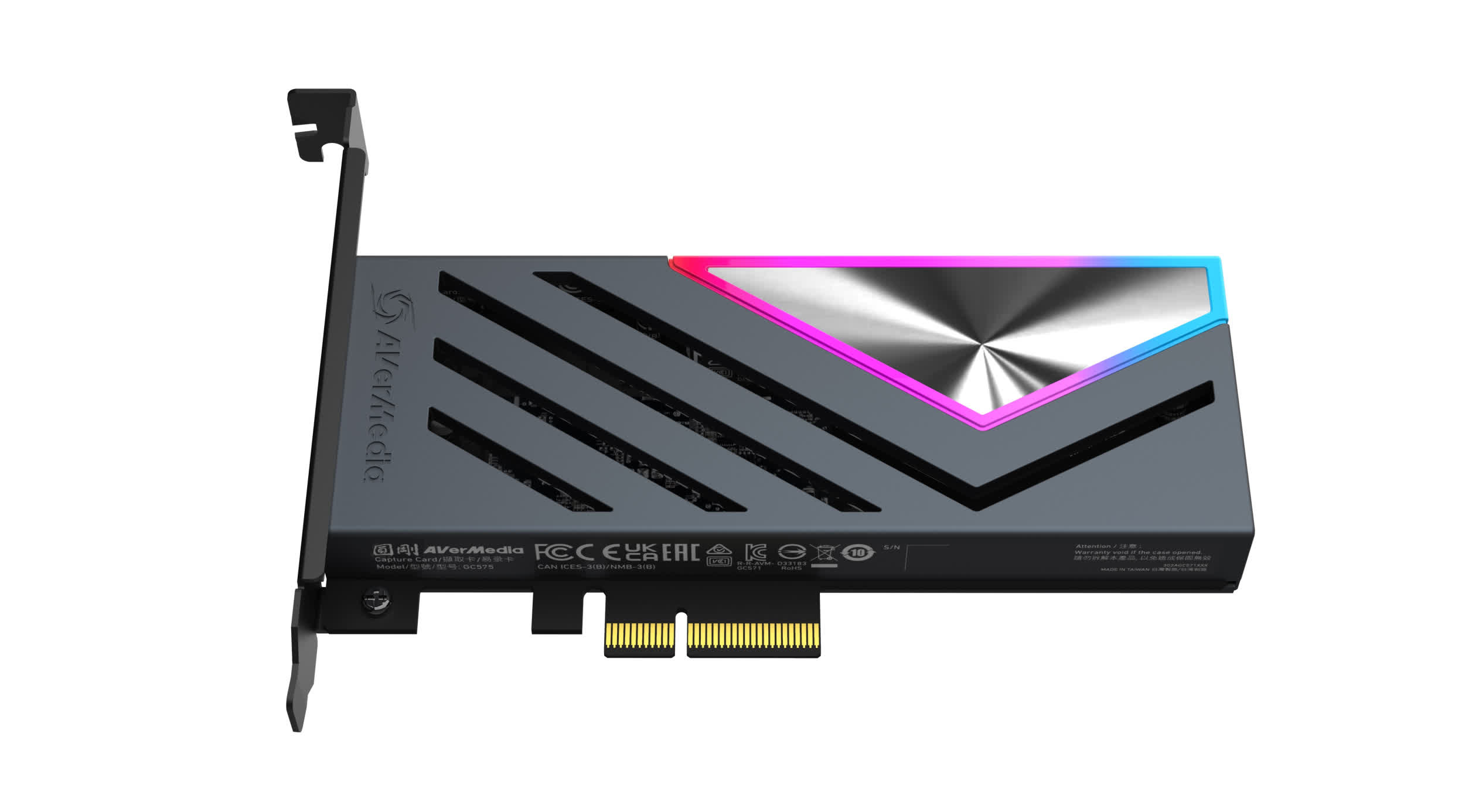Check it out: Modern gaming hardware and capture software are often “good enough” to satisfy players’ need to record a gaming session or stream their valiant deeds on Twitch. However, professional streamers could get better results with these dedicated internal PCIe cards.
AVerMedia introduced two new PCIe cards for game capture and streaming tasks. The Taiwan-based manufacturer now offers the no-compromise Live Gamer 4K 2.1 recording card – the PCIe version of the previously introduced Live Gamer Ultra 2.1 USB device – and the entry-level Live Streamer Ultra HD card.
AVerMedia describes the Live Gamer 4K 2.1 as the world’s premier consumer-grade HDMI 2.1 PCIe capture card. The device offers HDMI 2.1 connectivity, Ultra HD recording, and streaming with high frame rate support. Players can capture a 4K60 video clip or broadcast in 4K at 144Hz with VRR passthrough and HDR support.
The less capable Live Streamer Ultra HD card is designed for early explorers of the live-streaming world. The PCIe card can broadcast and capture at 4K resolutions, albeit at lower frame rates (60/30 fps) than the high-end card. However, capturing game sessions at lower resolutions (1080p) can boost the frame rate up to 120.

“Whether you’re seeking to play the latest 4K games, looking for HDMI 2.1 compatibility, or preferring PCIe connectivity, we’ve been continually expanding our capture card line to meet the needs of the streaming community,” the CEO said.
AVerMedia also provides RECentral, a free dedicated software for the newly introduced capture cards. The program allows simultaneous streaming and broadcasting to multiple platforms, including Twitch, YouTube, and Facebook. RECentral also works “effortlessly” with other third-party capturing and live-streaming platforms.
AVerMedia’s capture devices are already available for purchase through Amazon. The Live Gamer 4K 2.1 card is on sale at a suggested retail price of $270, while the entry-level Live Streamer Ultra HD card costs $180.
AVerMedia capture cards offer low-latency recording and streaming capabilities for PCs but can also work with consoles/PC setups. However, players need a spare PCIe slot to get the best results out of the hardware. Alternative, software-based solutions such as OBS Studio or GeForce ShadowPlay can usually provide excellent results for both streaming and recording tasks with sufficiently powerful hardware.

